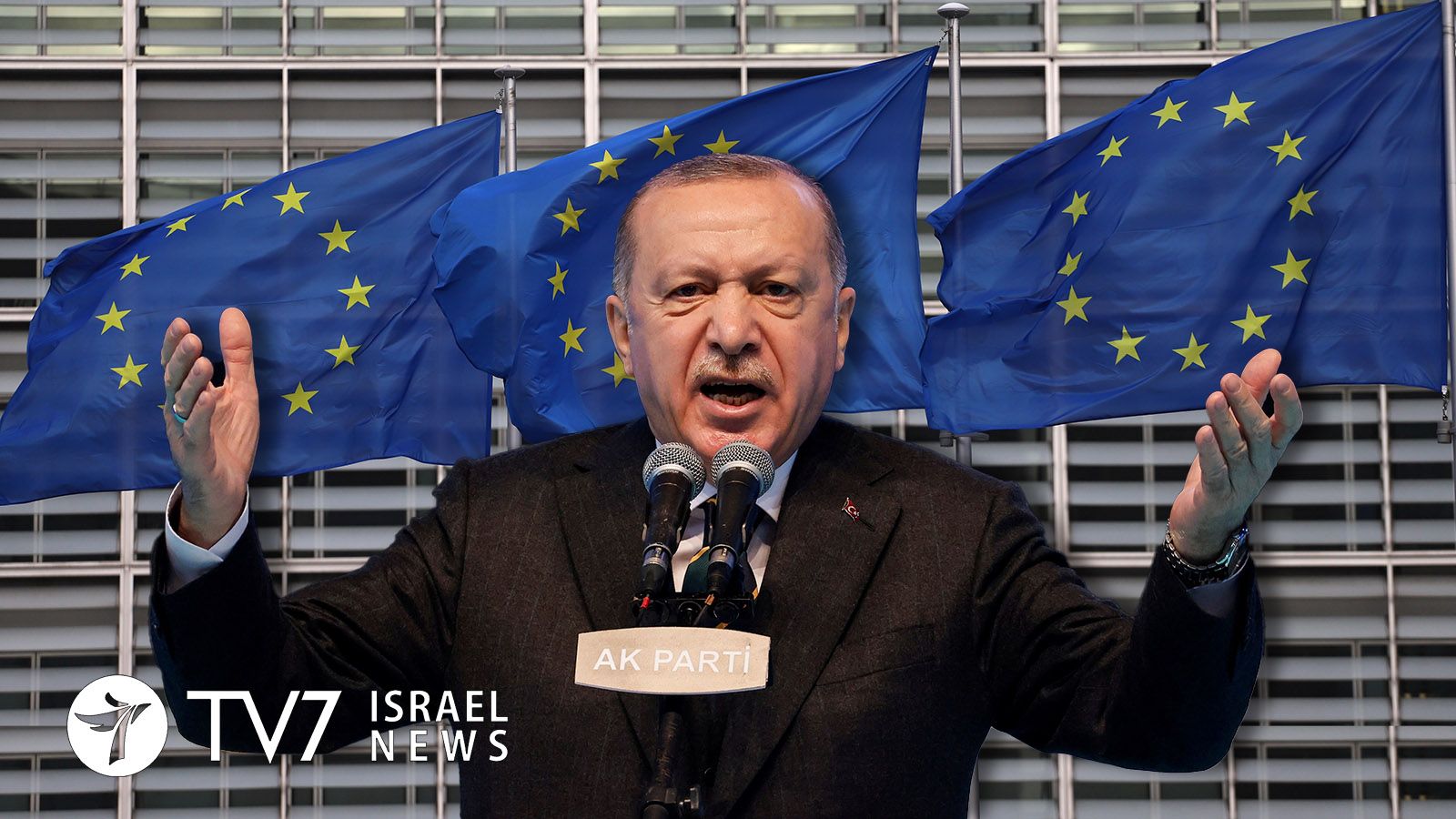The European Union has failed to reciprocate for his nation’s effort to improve relations, Turkey’s President Recep Tayyip Erdoğan told ambassadors from the bloc.
By Erin Viner
Ties between the sides reached a peak of tensions in 2019 over Turkey’s dispute with EU member Greece over maritime jurisdiction and rights to offshore energy resources in the eastern Mediterranean Sea. Both countries, which are NATO allies, have since resumed negotiations to resolve the matter. While the talks have been able to alleviate pressures and create what both Ankara and the EU have referred to as “positive agenda,” improved cooperation has yet to be achieved.
Erdoğan told the vising ambassadors at a meeting in the Turkish capital that despite his goal to place relations on a “more solid foundation,” he has been subjected to what he called “stalling tactics.”
“I want to state with sadness that we did not receive the response we wanted from the EU side to these steps,” he said.
The Turkish leader went on to say that his country has not received “meaningful support from the EU in its battle with migration,” stressing it would not be possible to have “deepened cooperation” on the problem until the March 2016 deal is updated.
The EU reached an agreement with Turkey almost 6 years ago, to host a surge of refugees from the Syrian Civil War and prevent them from entering European countries in exchange for billions of euros for projects.
The world’s largest refugee population of an estimated 4 million Syrians have sought refuge in Turkey, which declared it will not accept any more migrants.
Referring to a dispute between Minsk and the EU over millions of migrants stranded at their borders, Erdoğan said the “crisis in Belarus has shown once again that the bloc is devoid of a sustainable policy in battling migration.”
He also said political turmoil in Bosnia, caused by Bosnian Serb leader Milorad Dodik’s separatist moves, was exacerbated by shortcomings in the bloc’s perspective of membership, adding that the region is “giving signals of returning to the negative environment of the 1990s.”
Dodik wants to roll back all reforms made in the wake of the bloody 1992-1995 regional war and return to the 1995 constitution, under which representation of the state was limited to basic institutions. Bosnia’s opposition leaders warned such developments could lead the Serb Republic into a new war. Many Bosnian Serbs also expressed concern that Dodik’s moves could spark a new conflict and prompt a relapse into chaos.
In late December 2021, Turkey announced willingness to mediate the Bosnian crisis.
“We view Bosnia and Herzegovina as a whole. We have done all we can for its unity and stability, and we will continue to do so,” Turkish Defense Minister Hulusi Akar told CNN Turk at the time.
Mostly-Muslim Turkey has strong ties with Bosnia. Erdoğan has often praised Bosnia’s wartime leader, Alija Izetbegovic; and formed friendly relations with Bosnia’s tripartite inter-ethnic presidency.
